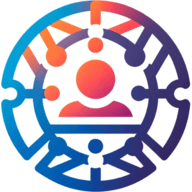5 Handling Difficult Candidates in the Staffing Process
Navigating the staffing process can be challenging, especially when faced with difficult candidates. This article delves into effective strategies for handling complex situations during recruitment, drawing from expert insights in the field. From turning communication challenges into learning opportunities to leveraging AI in candidate assessment, readers will discover practical approaches to transform difficult interactions into positive outcomes.
- Turn Communication Challenges into Learning Opportunities
- Transform Skepticism into Passionate Advocacy
- Address Difficult Behavior with Empathy
- Prioritize Compassion in Counselor Hiring
- Use AI to Navigate Challenging Candidates
Turn Communication Challenges into Learning Opportunities
It was one of the most difficult hirings in Talmatic history! We had a very strong candidate who ignored communication protocol and did not even appear for client interviews that had been arranged.
We were taken aback. However, instead of dismissing him outright, we conducted a one-on-one meeting to determine the issue, which turned out to be a time zone and expectation problem. We offered him some templated communication protocols and formatted all further interactions with buffer reminders.
As a result, the candidate passed the process with flying colors and was extended a long-term job offer.
This incident taught me the importance of active communication and caring, even with problematic candidates. So, don't be quick to say "No!"

Transform Skepticism into Passionate Advocacy
Direct Primary Care (DPC) hiring taught me that 'difficult' candidates often reveal the most about your practice values. I once interviewed a nurse who challenged every aspect of our membership model, questioning why we didn't accept insurance and demanding detailed financial projections. Instead of dismissing her concerns, I used them as teaching moments about DPC philosophy. Her skepticism actually helped me refine our patient education approach—if I couldn't convince a healthcare professional, how could I convince patients? The situation became a turning point when she realized DPC aligned with her original nursing ideals. I hired her, and she became our most effective patient advocate because she'd already worked through every objection. Sometimes 'difficult' candidates are just passionate people testing whether you truly believe in your mission. That's how care is brought back to patients.

Address Difficult Behavior with Empathy
One experience that comes to mind was with a candidate who was technically qualified but dismissive and combative throughout the interview process. During a panel interview, they interrupted team members, challenged almost every question with an air of superiority, and even criticized our company's processes without fully understanding them. It was uncomfortable—not just for me, but for the entire team.
Instead of getting defensive or shutting it down, I leaned into curiosity. After the panel, I asked for a one-on-one conversation. I calmly addressed the tension I saw and asked if something had come up that was affecting their mindset during the interview. To my surprise, they admitted they'd had bad experiences with past interview panels that made them feel like they had to "defend" themselves. That conversation changed everything.
We talked about expectations, mutual respect, and what collaboration really looks like in our culture.
We decided not to move forward with the hire—not because of that one interview but because the pattern of defensiveness continued. However, I'm glad I addressed it and gave them space to reflect. It clarified our values and showed the team we prioritize both skill and attitude.
The lesson for me was this: a difficult candidate isn't always a bad one—but how they handle discomfort often reveals how they'll perform under pressure. Addressing issues with empathy and transparency instead of avoidance leads to better decisions and stronger team alignment.

Prioritize Compassion in Counselor Hiring
In my line of work, a "difficult" candidate isn't someone who's just unprepared; it's someone who lacks the heart for it, and that's a much tougher situation.
We were interviewing for a counselor position a while back. On paper, this person was a rockstar—amazing credentials, years of experience, looked perfect. The first half of the interview went great. Then, we asked about a time they had to work with a resistant client.
Their whole demeanor shifted. They described the client with such a cold, clinical detachment, even using language that bordered on blame. They talked about the person as a problem to be managed, not a human being who was hurting. There was zero empathy in their story. In that moment, the impressive resume became worthless.
For us, that's the ultimate deal-breaker. We're in the business of trust and hope. Our clients are at their most vulnerable, and they need to feel safe and seen, not judged.
I ended the interview politely but firmly. I knew there was no path forward. We told them we felt the role required a different approach to align with our community's philosophy.
It was a difficult decision because we needed the staff, and they were technically qualified. But as the owner of Ridgeline Recovery, my primary responsibility is to protect the people we serve. We can teach someone new skills, but we can't teach them how to care. We had to hold out for someone with the right heart, not just the right resume. It was a crucial reminder that in this work, compassion is the most important qualification of all.
Use AI to Navigate Challenging Candidates
Yes, I have dealt with a difficult candidate during the staffing process. Such candidates often present challenges like unrealistic salary expectations, poor communication, or unprofessional behavior during interviews. In one instance, the candidate consistently missed scheduled calls and demanded a salary beyond their experience level. AI tools helped manage the situation by automating screening, analyzing communication patterns, and providing insights into their suitability, enabling a more informed and efficient decision-making process.
I handled the situation with patience and professionalism, maintaining clear and respectful communication throughout the process. I focused on understanding the candidate's concerns and expectations, then addressed them as effectively as possible. By staying composed and solution-oriented, I was able to guide the conversation constructively and keep the process on track.



